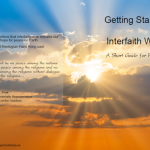In today’s increasingly pluralistic society, religious diversity is both a reality and a challenge. Pagan organizations, representing a broad spectrum of ancient and contemporary spiritual paths, often find themselves marginalized, misrepresented, or directly attacked for their beliefs. These attacks may come from religious fundamentalists, misinformed media, political groups, or individuals rooted in fear or ignorance. How should Pagan organizations respond when faced with such hostility? The answer lies in a combination of education, legal advocacy, strategic communication, and unshakable integrity.
1. Respond with Education, Not Retaliation
Ignorance is the root of most attacks on Pagan beliefs. Often, those who lash out do so based on false assumptions—equating Paganism with evil, misunderstanding symbols, or assuming practices are dangerous or subversive. The most powerful response is education.
Pagan organizations should invest in public outreach that dispels myths and promotes accurate information about their beliefs and practices. This may include:
- Publishing FAQs, articles, and videos addressing common misconceptions.
- Hosting interfaith panels or community events.
- Supporting youth and adult educational programs that include comparative religion.
By meeting misinformation with clarity, Pagan groups demonstrate intellectual rigor and ethical commitment, shifting the narrative from suspicion to understanding.
2. Maintain a Legal and Ethical Backbone
When attacks escalate into discrimination, defamation, or attempts to restrict rights (e.g., denial of permits, exclusion from public ceremonies, or employment discrimination), legal action may be necessary. Pagan organizations should maintain ties with civil rights and religious liberty groups such as the ACLU or the Freedom From Religion Foundation, and be prepared to advocate within legal frameworks.
Establishing formal status as a religious organization (where applicable), training members in rights-based advocacy, and responding through legal channels sends a clear message: Pagan groups are not fringe collectives—they are law-abiding, tax-paying spiritual communities with full rights under the law.
3. Cultivate Allies and Coalitions
No marginalized group thrives in isolation. Pagan organizations should form alliances with other minority faith groups, LGBTQ+ organizations, Indigenous spiritual advocates, and progressive interfaith coalitions. When attacks occur, a chorus of diverse voices defending the rights of Pagans lends weight and legitimacy to the response.
These alliances also create opportunities to support others in their time of need, demonstrating that Pagan values—such as reciprocity, sacred relationship with nature, and respect for personal spiritual paths—are not just inward-looking but socially engaged.
4. Communicate Strategically and Consistently
When responding to attacks, messaging matters. Organizations should speak with a unified, calm, and consistent voice. A well-crafted public response might include:
- A clear rebuttal of misinformation.
- Affirmation of the community’s positive values.
- An invitation to dialogue.
Avoiding defensive or aggressive language is key; the goal is to model the very tolerance and open-mindedness that Pagan paths often preach. If internal divisions exist (as they often do in diverse spiritual communities), organizations should designate trusted spokespeople and media-trained leaders to serve as liaisons during tense moments.
5. Lead by Example: Embody the Principles You Defend
Perhaps the most powerful response to attack is to continue living and practicing in integrity. Pagans often hold reverence for the Earth, personal sovereignty, sacred cycles, and care and consideration for others at the core of their beliefs. Demonstrating these values through environmental stewardship, community service, and ethical conduct quietly undermines the narratives of fear and hostility.
Being visible in the community not just as “Pagans” but as compassionate neighbors, teachers, artists, and workers also helps normalize Paganism as part of the social fabric. Over time, the power of lived example does what no argument ever can: it changes hearts.
6. Prepare for Disturbances and Violence
While education and outreach are ideal, Pagan organizers must be pragmatic about the reality that some individuals may show up at public events intending to disrupt or even cause harm. Preparation is key to ensuring the safety of participants and maintaining the integrity of the event.
Pagan organizations should:
- Coordinate with local law enforcement ahead of major public events, ensuring they are aware of the gathering and available if necessary.
- Designate and train a security team composed of trusted members who can recognize and de-escalate potential issues without resorting to confrontation.
- Establish clear codes of conduct for participants and have a clear plan for how to handle individuals who violate those codes.
- Communicate behavioral expectations to attendees in advance, including what to do in case of protest or disruption.
- Consider private venues or ticketed entries for sensitive ceremonies to minimize risks.
Preparedness demonstrates not only the community’s commitment to peaceful practice but also its professionalism. A well-prepared group can prevent a small disturbance from escalating into a dangerous situation, ensuring the safety and sanctity of the gathering.
Conclusion
Pagan organizations need not respond to hostility with hostility. Instead, they can rise above attack with dignity, wisdom, and strategic resolve. By educating the public, standing firm in their legal rights, cultivating allies, crafting thoughtful communication, and living their values, Pagans can transform moments of confrontation into opportunities for growth—not just for their own communities, but for society as a whole.
In the words of the Wiccan Rede, “An it harm none, do what ye will.” Let the response to hate be one of healing, truth, and enduring strength.





















